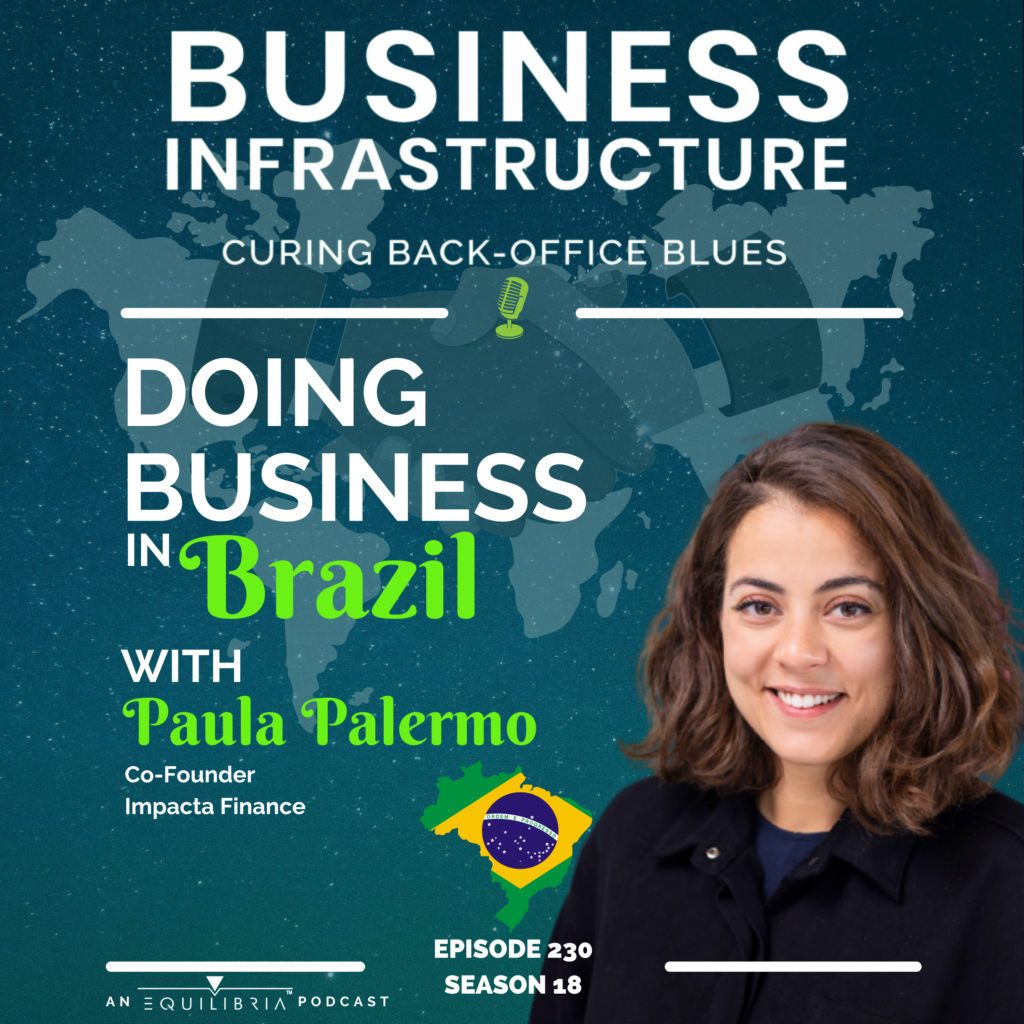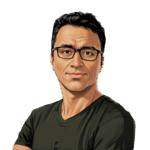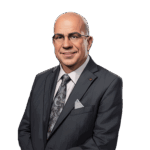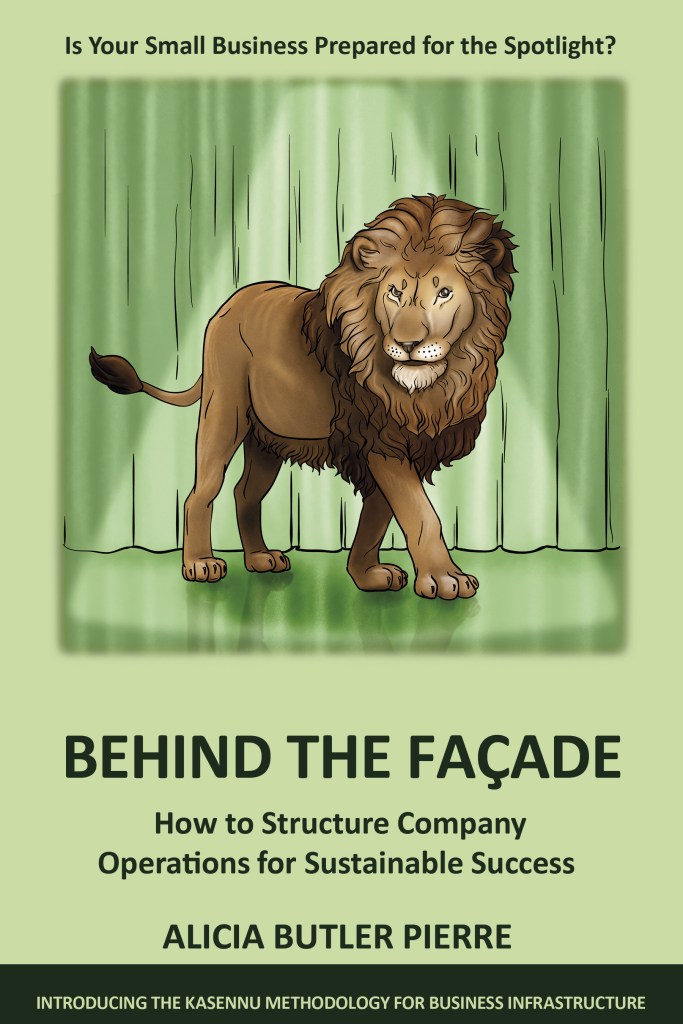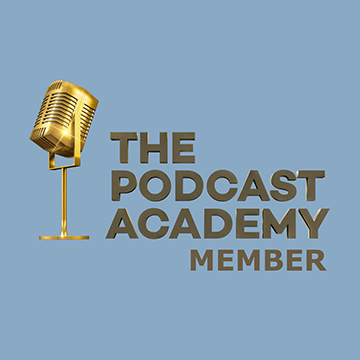Transcript
We’re aboard Equilibria Airlines at the halfway point on a nine-hour flight from Mexico City further south to Brazil, the largest country in both South America and Latin America in general. We’re headed for São Paulo, which happens to be the largest city in Brazil and ranks just above Mexico City as the 4th most populated city in the world.
I’m Alicia Butler Pierre and this is Season 18 of the Business Infrastructure podcast – the show where we share operational tips, tactics, and tools for curing back-office blues. I can’t hide it – I’m excited! This will be my first time in Brazil. I’ve wanted to visit for a long time and now here we are. And I don’t know about you, but I want to experience as much of it as we can, but we’re here to talk business first.

This episode is underwritten by Equilibria, Inc. the company behind this podcast where we design scale-ready business infrastructure for fast-growing small businesses.
We’ve landed at the São Paulo airport. The weather is warm, and the atmosphere is buzzing with activity. There’re people everywhere, but somehow, we spot Rafaela Romano. She’s really busy but kindly offered to meet us here and take us to an Airbnb we’ve rented for the week. Rafaela is working on an important project in the Amazon rainforest and must get back there, but before she does, she helps us set up a Zoom call with her business partner, Paula Palermo. And Paula’s about to give us a crash course on scaling operations with blockchain technology, the importance of giving first, learning Portuguese, and so much more!
This is Episode 230 – Doing Business in Brazil with Paula Palermo
Hi, Alicia. Thanks for having me. I’m Paula Palermo. I am from Brazil. I’m from Sao Paulo. And I’m living now in Lake Como in Italy.
And what brought you to Lake Como in Italy?
Love, Alicia.
Love. Amor.
Amore.
Okay. Okay. Well, without giving too many details, who’s that special someone?
Yeah. So actually, I met Lele in Brazil. He was doing an exchange at my university, and then after everything ended, we decided to stay together. And the place that we live right now is Italy. We’ve been living in Spain before. We need to balance business in life, and I think it’s a great, decision to take as well when you can have this balance in your life.
Paula and her beau have been living in Italy now for a year. And although she advocates the importance of balancing personal and professional life, she’s clear on her mission.
Yes, exactly. It’s totally focused on Latin America and Brazil. Even if I’m living here, we have this commitment to work for this specific region.
It’s Paula’s commitment to Brazil that’s made this interview possible. And when I think of Brazil it conjures up images of great food, beautiful people, beaches, densely populated cities, Capoeira, and the favelas. But we’re here to talk business so let’s get right into it. Without hesitation I asked Paula to describe the small business climate in Brazil.
Wow, that’s, a huge task because Brazil is huge. But, I love to talk about Brazil and everything that we have there, because I also think that we have all those things that you said, but at the same time, we, we have many stigmas as well, we have, a lot of poor population, and also we still need a lot of infrastructure and also a lot of support for businesses and also for families and for many individuals that are living there.
But at the same time, I have to say that we are a very happy population, even with the difficulties that we have every day. And this is something that you can, actually see for any Brazilian that you meet. We are full of, happiness. We will make everything to have you being comfortable, around us. So, this is something that definitely you’re going to see when you go to Brazil or when you meet any Brazilian.
And yes, you are very right when you say about beaches, water, and also a lot of population. If you see Brazil, it’s almost a continent, right? And it’s so different because you have different, ecosystems, nature ecosystems from the north to south, and also very different cultures as well. So, if you want to go to Brazil, you need first to understand what you want to see because if you like big cities as New York, as Paris, as Milan, you need to go to Sao Paulo because it’s one of my favorite cities for sure. It’s so fun.
And if you want to launch a business, I think this is a great, place to start. And if you want to go to Rio, because Rio is still a big city, but, have a lot of beautiful, nature and a lot of things happening as well. And if you want to go more to the beaches, I think you, you should go to the northeast of Brazil, which is fantastic. And if you want to go to nature, why not to go to the Amazon rainforest where Raf, my co-founder is right now.
In other words, go to Brazil with purpose and intention. We talked a little more about her business partner Rafaela, or Raf, as Paula affectionately calls her. With a country as vast as Brazil, they chose to setup their company, Impacta Finance, in Sao Paulo but there are certainly other options.
You don’t need to leave in a big city to actually start a business. And that’s also how we see in Brazil, because as we don’t have much, we do what we need to do with what we have. Many people start with a very simple solution. They launch their business, and they actually can make it to live. But we still face a lot of difficulties. It’s not a paradise. I’m not saying here that it’s just easy to launch a business. it is complicated. You need support.
That’s something that I, I have in my life. I receive support, and I want to give support as well. So, I think that this moment when you need to start a business, we want to start a business. It’s very important to look for people that can help you and that can help you to lead the way. So, this can be in Sao Paulo, this can be in Rio, this can be in the Amazon, it can be in many places, but you need to find something that you really love to do, something that you feel there is a market for, and also do not close your doors for help. Because when you’re starting a business, you need help. You need directions, and you need contacts. So, I think with this formula, we can start doing something
And that’s a formula that applies for any type of business. I wondered if there were some businesses that fare better than others. Paula and Rafaela’s company specializes in blockchain technology. Which businesses do well in Brazil?
I would divide in two chapters. Okay? So first it’s business without tech. We have many small business in Brazil that is focusing on sales, on marketing. And you see that a small, and medium enterprises, they are around all the sectors that we see in society. You can have a small law firm, you can have a small marketing agency, and this is very easier to have in Brazil. And also with those very specific things we could see as well, after the pandemic and the crisis that we have happening right now, that people, they find what they can to, to live, right?
So, we need to do with what we have, and this is something important. And in the other side, the tech scene is fantastic, and I tell you why, because I come also from the startup world, I work it with venture capital, and it’s so great to see the boom that happened in Latin America with tech, because technology help us to scale, right? And when you’re talking about those countries such as Brazil, Colombia, Chile, Paraguay, Argentina, we are talking about a huge population. If you look for Latin America, we have around 600 million people. This is a big population. So, when you’re talking about this, and we are using technology, we are allowing those projects to scale and to arrive to those people. And when we see that, Latin America, we had a boom with startups mainly in the sector of fintech because we still have many needs to fulfill, right?
Ah, so once again technology seems to be the way to go if you want to truly scale a business not just in Brazil but across Latin America. Specifically, financial technology (or fintech) is re-shaping the economies of many countries around the world.
So financial inclusion is very important. And we see that many fintechs, they launch it, and they scale very fast because you have a big population. Just Brazil, we have 200 million people there. So, this is huge. And if you launch a business and you gain a very small portion of this market, you’re already done, you can become a unicorn, right?
So, this is something very important about technology in this region, because this is something that people say, “Oh, Brazil, oh, South America, they’re underdeveloped.” You know? Like, “They don’t know what to do, they…et cetera.” But right now, investors are looking for this region. They are looking for many different sectors that we still need to develop. So, I think that technology plays a huge, huge, huge, role, in the business scene in Latin America.
And also, we have great developers, we have great people as well to launch and to structure those business. Not just a lot of companies as well that are from outside. They look for people from Brazil, from Argentina to work for them because they know the quality of the work that we do, and also the quality of the tech people that we have. So, I think this is also a great step for people to start thinking about their own businesses because yeah, why work for a startup or for other companies, when you can launch your own? Of course, you have some difficulties in the way, but this is the same thing that I encourage everyone, to try to do at least once in your life, to create your own path.
That’s what we’re all about here on this show – creating your own entrepreneurial path and scaling your vision with business infrastructure. That path can be a lonely one, but thankfully there are resources to help you. All you have to do is seek them and you will find them, sometimes where you’ll least expect to.
I think that I can share a bit of my own path. And this path, actually I also passed through Techstars. I work there recently, and they have a very big, interest in philosophy, which is give first. And the give first it’s actually something that I always had in my life. So, since I was a teenager, I was doing volunteering work. I, connected with people when we had had similar interests. And right now, I have a lot of contacts around me, so I don’t need to, have a relationship with someone just because I need something right now. And this is something that I learned, right? If I see, Oh my God, Alicia! I have a lot of admiration of the work that you do. Let’s connect and let’s, I don’t know, share some thoughts, right?
And this, in the future can come become something bigger than just this introduction. And this is something that I learned and I think that everyone should do to give first when someone needs help, or when you see that someone is doing a work, that it’s nice and you admire that, because this is also something that can help you to build those connections.
And those connections are so important because no one can take this out of you. This is something that you, of course, if you do something wrong or if you mess up with them, you can lose them. But, this is something that, it’s like your garden, like the flowers that you put on your garden, and you need to go there and cultivate that.
And you arrive at some point that you see, “Oh my God, I created this full network around me that I don’t know if I need something. I know where to ask.” If I see something that is also nice for Alicia, I will tell you. “So, look, Alicia, I found this might be interesting for you.” I’m giving you something. And in the future, you can say, “Oh my God, this is also nice for Paula. She helped me in this, other moments. So, I also want to help her.”
In other words, leveraging reciprocity as a building block for meaningful relationships. This is actually how Paula and I met. We were already connected on LinkedIn because I wanted to expand my network of blockchain and cryptocurrency experts around the world. And then, knowing the size of the Brazilian market, I knew it was a country we had to include on our audio tour this season. All it took was a personal message to Paula and voila! Here we are having this conversation.
LinkedIn is a fantastic social network. And since the beginning when I started using LinkedIn, I started to create this network around me with people that are working in different areas, but also, with similar interests. So I think this is around when you need to create your network and your contacts, and of course, this is going to open doors for you because this is your own book, life book. And when we are talking about the difficulties of having business, I think having the connections is something that definitely work, for you to have support or also for you to have your first clients.
It’s also important to ask help and to be humble. Because for example, in Brazil, it’s so different from many countries here in Europe, which you have support from government, from developing agencies that if you want to start a business, they give everything to you. They give, credit, they give support, they give space for you to work, they give you access to x, y, and z. And this is something that we don’t have in Brazil. and when we don’t have that, you need to run with what you have.
So, I think this is something very easy to do. It doesn’t require any type of capital from you, and it’s something that you can start doing right now. If you’re interested in a specific area, go and find people that work in this area, ask questions, show curiosity that tomorrow, this person can come back to you with a job offer or a business idea, or something nice to do together. So, this is my thought about like how those connections also help you to shape your first steps when you want to create a new business.
That is fantastic! So here’s what I heard…give first.
Yeah.
Ask for help, show curiosity.
Exactly.
And I’d like to add to that, be genuine. Don’t approach other people thinking, “What can I get from that person?” But show a genuine interest in the other person that you’re networking with. You mentioned also being a part of an incubator program. What exactly is Techstars?
I was working for Techstars, so I was a growth associate, and the associate role is to help all the companies that are part of the program. Techstars is an incubator accelerator, and they invest in your business from day one. So, their business, model is, they partner with big corporations and with LPs, that in the venture capital world, it’s limited partners. So, the venture capital, it’s called the risk area of, investment. Those people invest early in startups, they give you money to start your business in exchange of shares of your company, and then they give this money because they believe that your business has a huge potential to scale. After some years, when your company have much more value in the market, they exchange those shares for money.
So that’s how they make money, venture capitalists, because they help your company to grow, and they help it from day one, they have those shares, and then they can exchange when those shares, have more value in the market. So that’s traditionally how venture capital work. Techstars is very similar model, but the nice thing about Techstars is that they work in the very first steps of businesses, which we call pre-seed and seed, right? Like literally seeds. When your business is starting to grow, you can call this a seed because it’s not a plant, it’s not a flower’s, not a tree. It’s small seed. And then they help you with 100, $20,000 in exchange of 6% of your company. And then you enter in this accelerator program that, is, three month long.
And in those three months, you have contact with many mentors. You have contact with, workshops to help you to shape your business, to clarify your ideas, to be ready to launch and to go to market stronger. And Techstars is everywhere.
Paula was heavily involved in a Techstars program located in Dublin, Ireland. It focused on Web3 or the third generation of the internet. Most of this accelerator program was done remotely with a couple of weeks for in-person training.
There is a very interesting launch, call it Founders Institute, which they, they also provide this type of accelerator and help and mentorship for your business. And they are everywhere. If anyone wants to know more about this type of programs, feel free to ask me and reach me out. Very accessible. If you need help, feel free to ask me about this area, because it’s something that I really like to help as well.
Don’t be bashful! Take Paula up on her offer to assist. We’ve gotten off to an excellent start exploring more about doing business in Brazil. But how did Paula get into the tech game? Coming up after the break we’ll learn more about her, her background, and we’ll talk more about her company, Impacta Finance, and the role it can play in not only enhancing your company’s business infrastructure but in scaling your operations too!
Is your business growing faster than you can keep up with? Do you need to grow your team but aren’t sure where to start let alone who to hire first? And what about processes? Do you have any of them documented so that people know what work to do and how to do it?

If you own a fast-growing small business and want a company that can consistently operate without your daily presence, then the Smooth Operator course is for you. It’s an online introductory course on business infrastructure that can provide you with proven tools, tactics, and techniques to calm the chaos and restore order. Go to SmoothOperator.courses to learn more. That’s SmoothOperator.courses.
We’re back. In Sao Paulo, Brazil to be exact. So far, our gracious guide Paula Palermo has told us about the small business climate in Brazil, but what we don’t know yet is how Paula became a woman entrepreneur in the male-dominated industry of blockchain. So please, Paula tell us how did this all come about?
Well, this is fun. I started studying economics, because I come from a region, you know, Brazil, it’s very hard. I had many things around me that were inequality, people in hunger, in very hard conditions. And then when I realized that all those problems they are caused by our economic structure, I said, I need to, to study this. I need to understand this. Also, because I want to understand what is on the newspaper. When, all those, journalists were saying GDP, all this complex word, I had no idea about it. And I wanted to understand to change this reality. So that’s why I started to study economics. But I always had this passion about manualities, about creativity, and also about cities, because cities are so complex and they are around us, everything that we need to do, all the areas in the humanity and in science in everything, they are based on cities, right?
So, this passion made me to join the architecture school at the same time. This was a bit crazy, but I made it. And it worked, it because every day that I was studying those two topics, they were complimentary, right? And I have to say that right now is still with what we’re doing in Impacta with block chain and crypto, there is a lot of relationship with, of course, finance, because we’re talking about blockchain and the centralized finance, but as well with our surrounded world. So, in Impacta Finance, we work specifically, with use case of blockchain that are related to sustainability, to ecology, to social inclusion, and also to governance.
And when we are talking about those topics, actually we are talking about topics that I study in the urban planning and architecture school. Right now, we work with case such as recycling from electronic waste. We work with metaverse in the Amazon. Yes, there are metaverse in the marine forest, and those type of topics that actually, I feel that I’m still an architect when I’m working with that. So that’s a bit of short, version about how an architect and economist came into the blockchain world. And I swear to you guys that I still do some architecture and urban planning tasks, even working in blockchain.
This is indeed a unique combination of skills, but it goes to show the power of technology to bring seemingly unrelated topics together in ways that can positively impact society…at scale. Another technology that Paula and Rafaela leverage to scale impact is podcasting. It’s a medium they’ve found to be useful in explaining blockchain technology.
We also have a podcast called Impacta podcast. It’s in Portuguese though, because it was very important to explain this in Portuguese to people. We also have information in English. So, I would try to do my best here, with you now.
So blockchain technology is one technology that came mainly about decentralization. So, it called like decentralized ledgers. And to make it less complicated, let’s say I have, system of information, right Alicia and I, we have a podcast, and we do this podcast every day. And then I want to put this in a data room, or I want to record this in some place.
We have put these files in a place, and this place can be corrupted. Many things can happen with that. And what happened with blockchain is that all the information that you put in this system, they cannot be changed. And then you have actually literally a chain of connections. So, we started to see that this type of use case was very good, for example, for public policy, for finance because Bitcoin was the first to launch this inside finance. And they created a way that you don’t need a bank as intermediary. And while you need this chain of information that is secure, and you cannot change, you just can aggregate information to this chain.
Because when you have no bank, which is managing this information, everything can happen. I can tell Alicia, I actually give you money you cannot see on your account. I did it. Why You cannot see it. So this is impossible because my transaction will be registered in this chain of blocks of transactions. This is something very important, and that’s actually the structure that make it possible to not have intermediaries. And, I think this is the fantastic thing about blockchain. And when you’re talking about this new generation of internet, we have those three steps of, the development of internet.
Those three steps or evolutions of the internet that Paula is referring to is Web 1.0 which was websites with static pages. Web 2.0 brought interactive, dynamic websites like YouTube and Facebook. Web 3.0 is about ownership and decentralization.
And in web3, you can be part of it, you can own it, and you can be embedded in this system in a different way. Why? Because we are using this chain of information to record those systems and to record those things, that make this transparent and make it also accessible to everyone. Because you can go there and see a transaction and actually see what happened and why we created actually Impacta Finance in this specific, working this technology because we believe that not just finance, can improve with this technology, but also our everyday life. You imagine a government, if they record all the transactions that they did with the money that they need to use, corruption would not be here.
So, we see a huge potential for this chain of information being there in a transparent way that, we can access. But of course, this is not just a paradise because people, if they’re corrupted in the beginning, they could put information on chain. So, we still need to develop many types of social structures to have blockchain technology being implemented in the way that actually, it’s good for us. It’s truly transparent and it’s truly decentralized.
With transparency comes a reduction in corruption and greater accessibility to information. The internet, in many ways, is the great equalizer but as ubiquitous as it is, information must still be presented in a certain way for it to be useful. That’s why Paula says they are intentional about podcasting in Portuguese. This brings us to the role that language plays in conducting business in Brazil.
Yeah, that’s great. Because we have our culture in Brazil, it’s to welcome people. And we have this from the beginning. If you see Alicia, we don’t enter any war because, you know, when people come to Brazil and they say, “Yeah, I want this.” We say, “Yeah, just get it!” You know, because this is the way that we work as society. Not nice in the political size because we had many problems with that. But in the cultural side and actually that’s how I came to speak six languages. Because I started to say, it’s very different when you go to an English-speaking country because everyone that speaks English, they don’t try to speak other people’s language when they go to other country. They feel so comfortable to speak English.
And I feel this is a bit not respectful. When you go to a country and you start speaking with English as someone needed to speak English, you know, like, “Oh, you don’t speak English.” You, you know, it’s very complicated to, to be somewhere. So I went to Germany, I made sure I could learn German to at least go to the supermarket, talk to a old lady in the street and be respectful with everyone around me because I was in this place, right? And that’s how I learned Spanish as well. That’s how I learned French. And that’s a bit something very cultural to us. And I’m make sure to you that if you go to Brazil, people will try to communicate with you the way they can. And this is not something that you see everywhere. If you go to other countries, they will be reluctant. They will not do anything more to try to communicate with you.
But we do, we try to speak, English, we try to speak Spanish, we do mimics we do everything that we can to answer your question. And I think this is very important the way that we do business, but also, we, we have to have in mind that, there is still a huge gap in Brazilian population to speak English and to speak other languages. And this is something that we have to have in mind when we are starting things there. Of course, a lot of people speak English, but I think it’s very important for you when you want to launch businesses or to have a strong partnership that can communicate with people locally or to try yourself.
And Portuguese is the same because it’s such a rich language. We speak Portuguese in Portugal, in Brazil, Mozambique, Guinea Bissau, Angola, many countries in Africa. So, it’s a language that actually you can use in many places. But I would say that you can start a business even without speaking Portuguese, we will welcome you. It’s not the same in Germany. I’ve been there. It’s not so nice when you don’t speak German.
And that’s exactly what Jens Heitland told us in an earlier episode about doing business in Germany.
I’m sure if you go to Brazil, we’ll try to understand you, we’ll try to do our best, or even we will open Google Translator or any type of translator device to welcome you. And this is something cultural that I really admire in our country.
You know I always tell people, when it comes to Americans in particular, we are notorious for going into other countries expecting that people will speak English, which is very wrong of us. And so, one of my personal philosophies, Paula, is to always learn how to at least say please and thank you.
And also, it’s very important to learn how to say sorry. Because when you do something strange, and you need to say sorry in the language as well. So, I think this is basic to start being respectful, which I think it’s where we all need to start everywhere.
Indeed, Paula, indeed. We took a little detour there talking about language, but it was necessary especially if you want to expand your business’ operations to Brazil. Now, let’s resume the discussion about Impacta podcast.
It’s a podcast focusing on showcasing use case for blockchain technology, which are good for society, for the environment, and for our surrounding for a positive future. This is also the focus of our business. Our theory of change is that blockchain technology is the great technology to help scale payments, to scale transparency, to scale many things. So, our theory is that also the impact can be scaled through blockchain technology and not just scale it, because it can also bring transparency. It can bring manufacturers that are important for those types of business. When you’re talking about sustainability is very important to know if this impact is really being done right. And we don’t have this information on, on the known blockchain world, very in the transparent way.
So, we focus on, first, accelerating business, which are already operating impact to use blockchain technology to scale their business. So not right now our clients are, I will mention three, one metaverse in the Amazon rainforest – so we are working with them to implement blockchain technology. They already had this reserve that is protecting biodiversity and also nature. And we are, we are helping them to come to the blockchain work. Also, we have an electronic waste company. They already had their operating business in electronic waste, in reverse logistics and circular economy. And we are using blockchain technology to scale this operation and make this operation more transparent that manufacturers that need to recycle electronic waste can do this in a more lean and straight way and transparent way as well.
And also, the other case that we are working is Barter Chain. And barter chain is, an app that, actually you can barter service with, people around you. And this is fantastic because this is the oldest form of trade that is coming to the newest form of trade, which is blockchain technology. And this is a great combination.
It sure is a great combination. Based on what Paula shared, blockchain technology can be a key ingredient to building the business infrastructure – that is, the people, processes, and tools – required to scale your company’s operations. But wait, there’s more!
So those are types of our clients in the accelerator side because we really want to accelerate those ideas to blockchain. And on the other side, we are building an index, an index, that is hacking and classifying impact tokens. So, when you’re talking about those tokens, tokens are actually coins which are using blockchain technology to have the same principles that I mentioned before, which is, you can record the transactions, you can understand what this project is doing.
You can have everything transparent. So, this index is classifying and hacking tokens, which are coins using block chain that actually have impact. So, we are talking about carbon markets, which are also being represented in tokens right now. We are talking about renewable energy, we are talking about recycling, solutions. And all those solutions they are already using blockchain to implement finance and also to implement transparency. So, our index is connecting and listing all those solutions and hacking them. Why? Because we really think that those coins, those tokens, they can become the future of money.
I want to use money that is actually backed by sustainable practices. So, this is our, this is our theory. And if you have a business that is causing positive impact to the world, and you’re interested also about blockchain technology, please reach out to us. We’ll be happy to help you to use this fantastic tool to scale your operations, because that’s the way that we think that we can bring impact to the moon, as we say in crypto.
And to bring impact to the moon, business infrastructure is a must. As our session with Paula comes to a close, I asked if she had some additional resources to share with us.
I would start for the accelerator hubs that we have. Also, Brazil has some, groups which are from the government and like, Industry Alliance. So, we have an industry alliance for commerce, we have industry alliance for technology and all, all those are great, place to start connecting. Sebrae is a type of business support as well and entrepreneur support that can help you to scale. The government right now did cut a lot of money from education and from the academic resources. But we have fantastic support for academic research. But I would tell like the accelerators in Brazil, such as Plug and Play, Techstars is still not there.
But we still have Kubo from Itta, which is a big bank, and, we have many types of, venture capital firms as well, that they are not just in investing, but they are supporting entrepreneurs. If you want to come, I will really look for the commerce agencies as I thought this, industry, conglomerate that actually can help you to find your clients, to find their area to work, and actually to set up your business. So I think this is the short way to go. I can also help you with some links and you can leave those resources as well to who is listening to us.
That would be fantastic! I can’t thank you enough. This has been such a rewarding conversation. Obrigada.
Ah, de nada. It’s a pleasure to be here. And it’s so, so comforting conversation. I think it’s so important, the work that you are doing, because this is also a challenge that I have in my personal life, right give first, let’s help people to see the directions that they can take and once you receive help, also help the others. So, I think, talking is very important. Giving advice is very important. Helping each other is very important. And that’s actually the only way I think we will treat society. so yeah, listen to people, help them and be open. I think this is something very important, for us as a global community.
Thank you so much, Alicia.
You can learn more about Impacta Finance and the work that Paula and her co-founder, Rafaela are doing to scale positive impact and influence for social good by going to BusinessInfrastructure.TV. That’s where you can find links not only to their website and their podcast but to all the other resources Paula shared as well.
Well, unlike most of our other trips we don’t have to fly out immediately to the next country. We’re going to stay here in our Airbnb for another few days so that we’ll have time to chat with Rafaela before we head out to our next destination. In case you’re wondering where that will be, well there’s only one way to find out. You’ll have to come back to the show!

Thank you for tuning in! If you enjoyed this episode, then please subscribe and leave a five-star rating and review.
Yes, Brazil is a large country but don’t let that or the other barriers to entry Paula shared intimidate or prevent you from pursuing a dream you might have to expand your operations into the Brazilian market. Take Paula up on her offer – reach out to her. Connect with her. You never know what may happen. Remember, we’re all here for you so stay focused and be encouraged. This entrepreneurial journey is a marathon and not a sprint.
This podcast was written, produced, and narrated by me, Alicia Butler Pierre. Audio editing by Olanrewaju Adeyemo. Original score and sound design by Sabor! Music Enterprises.
This is the Business Infrastructure – Curing Back-Office Blues podcast.


